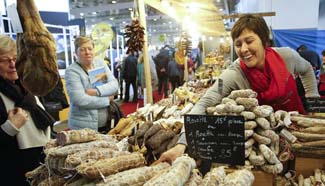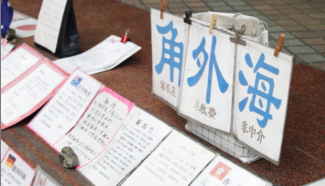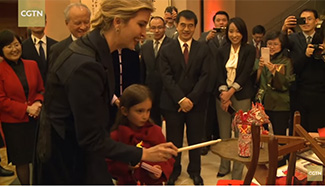BEIJING, Feb. 3 (Xinhua) -- The week-long Spring Festival holiday, which ended Thursday, is an engine for consumption as well as a time for the Chinese to refresh and prepare for the Year of the Rooster.
HOLIDAY ECONOMY
The number of visitors in Beijing's municipal parks hit a record high during the holiday, according to the municipal park administration center. Beijing's 11 municipal parks and a garden museum received 2.27 million visitors, 470,000 more than expected.
In previous years the parks were mainly visited by locals, while this year has seen more than 800,000 visits from tourists.
During the holiday, around 3,000 personnel were arranged to manage visitors to the parks. Sixty-six temporary ticket selling areas were added to meet demand.
Chinese people have become increasingly keen to travel, and 344 million tourist trips were made during the holiday, up 13.8 percent year on year.
China's tourism industry took 423.3 billion yuan (61.6 billion U.S. dollars) in revenue during the holiday, a year-on-year increase of 15.9 percent, according to the China National Tourism Administration.
Overseas travel has gained increasing popularity, with 6.15 million Chinese people traveling abroad during the holiday, up 7 percent year on year.
As a time for traditional family gathering, businesses do well over the holiday as people swarm to shops and restaurants.
Sales in the catering and retail reached 840 billion yuan during the holiday, up 11.4 percent year on year, data from the Ministry of Commerce showed.
Spring Festival is a great time for movie lovers as many movies are released over the holiday.
China's film market had box office takings of 3.347 billion yuan from Jan. 27 to Feb. 2, a new record, according to industry figures.
BACK TO WORK
The end of Spring Festival means the start of work for the new year, and many Chinese people have bid farewell to relatives in their hometowns and headed back to work.
Early on Thursday, migrant worker Wang Xinrun arrived at the station in Lingyun County in China's southern Guangxi Zhuang Autonomous Region to head back to work in Guangzhou city, Guangdong Province.
The station was opened in December 2016, as part of local government poverty alleviation efforts. As no railway passes through Lingyun, people take shuttle buses at the station to the nearby high-speed train station in Bose city.
At 4:20 p.m., Wang got onboard a train heading to Guangdong with 600 other migrant workers, free-of-charge. The train was arranged for migrant workers in Lingyun to take them back to work after the holiday.
Poverty relief has been high on China's agenda. Though significant progress has been made, the country still has about 45 million people living in poor conditions. The country aims to eradicate poverty by 2020.
Liu Nianxiang, a poor farmer in eastern China's Jiangxi Province, has been applying fertilizer to her fields in recent days.
She said that the local government's effort in developing signature products and agricultural cooperatives had helped local farmers increase their income.
She hopes that the government will offer training in agricultural technology so that the undereducated farmers like her can be better equipped.
The country's measures to support entrepreneurship and innovation are also encouraging people to aim high in the new year.
"We wish our tree of entrepreneurship grow faster and stronger," Sun Xiangyu wrote in a Spring Festival message to his co-workers.
Sun and his team set up a company in a venture base in Shenyang city, Liaoning Province, at the end of 2015 to develop a children's medical service app.
He said that the cheap offices, apartments and services offered by the base helped the business to grow, and the app already has over 10,000 users.
Sun said that the company was facing the duel challenges of a lack of capital and talent.
"I'm confident that things will get better, as entrepreneurship is the trend forward," he said.
In order to help business starters in the new year, innovative measures have been adopted by local governments around China.
According to science authorities in Yinchuan city, Ningxia Hui Autonomous Region, companies and individuals in the city will be able to get scientific innovation coupons from the government.
The coupons can be used to pay for services offered by scientific organizations.
Xi'an city in Shaanxi Province announced that the city would offer support to newly-built army-civilian integration incubators and national scientific innovation programs.
China's ambition to boost science and innovation has also inspired foreign innovators.
Talking about his new year wishes, Alain Crozier, Microsoft CEO of the Greater China Region, said that in China's dynamic Smart Cloud service market, he hoped that he could use big data, cloud computing and smart technology to help Chinese companies realize digital transformation.














